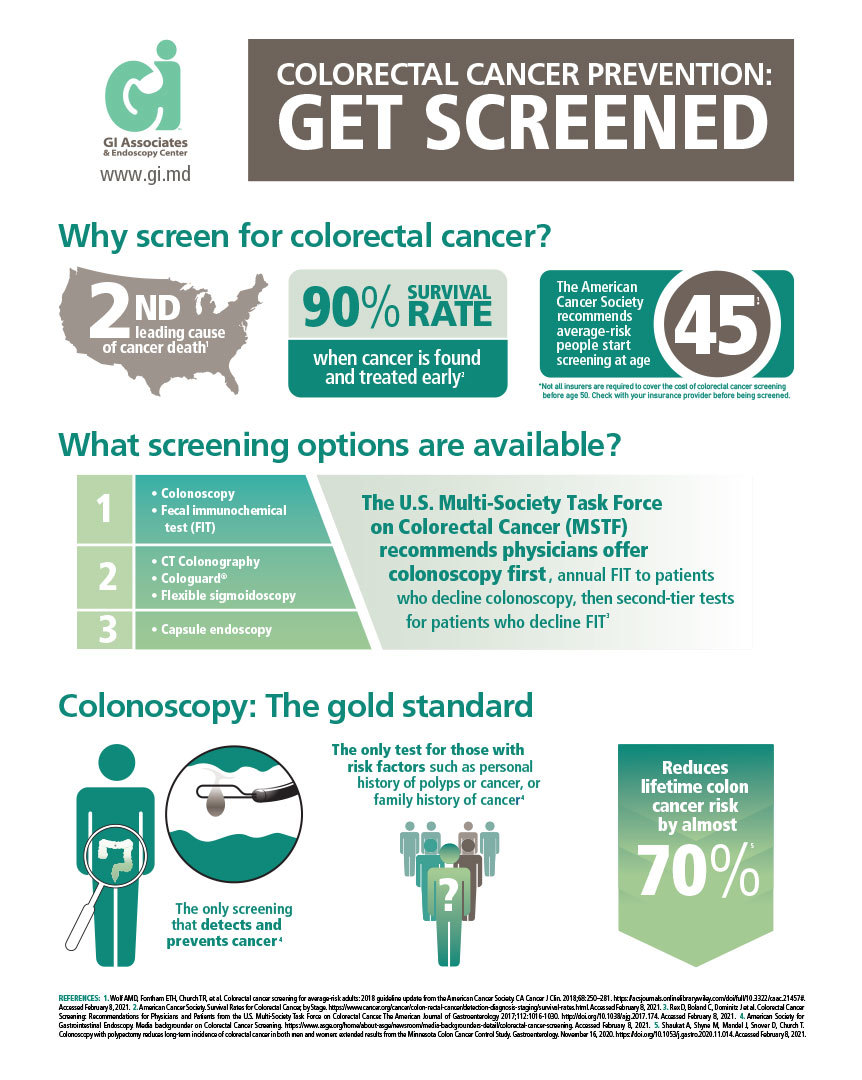
Colon cancer, also known as Colorectal cancer or CRC, is the second leading cause of cancer deaths in America. Colorectal cancer has a high cure rate if it's caught early enough. That's why it's essential to know the signs and symptoms of colon cancer, so you can get checked out if you have any concerns.
CRC can cause a wide range of symptoms, some of which are vague and could be mistaken for other conditions.
The Signs of Colon Cancer
The most common signs and symptoms of colorectal cancer include:
– Blood in stool: Blood in stool is often the first and most noticeable sign of CRC. If you see blood in your stool, it doesn't necessarily mean that you have Colon cancer, but it's something you should get checked out.
– Changes in bowel habits: People with Colorectal cancer may experience changes in their bowel habits, such as having diarrhea or constipation or going more or less often than usual.
– Abdominal pain or cramps: Many people with CRC experience abdominal pain or cramps. It can be located in any part of the abdomen but is often worse on the lower right side.
– Unexplained weight loss: If you have unexplained weight loss, it could be a sign of Colon cancer. It can cause weight loss for several reasons, including nausea, vomiting, and an inability to eat. If you have lost weight without trying and have any of the other signs or symptoms of Colorectal Cancer.
– Weakness or fatigue: Many people with CRC experience weakness or fatigue. This can be due to many factors, such as cancer itself, the treatment, or anemia (a condition with too few red blood cells).
Risk Factors For Colon Cancer
There are several risk factors for colorectal cancer, including:
- Age
- Family history
- Ethnicity
- Personal history
How Colon Cancer is Diagnosed
CRC is typically diagnosed through a combination of methods, including medical history, physical exam, and imaging tests. Your doctor may also order blood tests and a stool test to look for signs of cancer.
The most common imaging test used to diagnose Colon cancer is a CT scan. This test uses X-rays to create a detailed image of the inside of the body. Other imaging tests that may be used include an MRI, a PET scan, or an ultrasound.
Treatment for Colon Cancer
Colorectal cancer is typically treated with surgery, chemotherapy, or radiation therapy. The type of treatment you receive will depend on the stage of your cancer and your health situation.
Surgery is the most common treatment for CRC. This involves removing the tumor and some surrounding tissue. Surgery can be done as an open surgery or laparoscopic surgery.
Chemotherapy is a treatment that uses drugs to kill cancer cells. It can be given as a pill or as an injection.
Radiation therapy is a treatment that uses high-energy beams to kill cancer cells. It can be given as external radiation therapy or internal radiation therapy.
Prevention of Colon Cancer
There are several things you can do to reduce your risk of colorectal cancer, including:
- Eating a healthy diet
- Exercising regularly
- Maintaining a healthy weight
- Avoiding smoking
- Limiting alcohol intake
If you have any of these risk factors, talk to your doctor about ways to reduce your risk of CRC.
Conclusion
Colon cancer is the third most common type of cancer in America. It can be a silent killer because its symptoms often don't manifest until the disease has progressed significantly. That's why it's essential to be aware of the signs and symptoms of colon cancer, so you can get treatment as soon as possible if you suspect something might be wrong.
